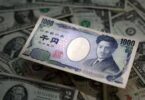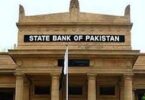F.P. Report
KARACHI: “Exporters have warned that any depreciation in rupee would not yield the desired impact on the declining exports and massive trade balance. Devaluation of currency can only help one time for the non-realization of export proceeds or consignments in pipeline, otherwise, foreign buyers demand for discount due to devalue of Pakistani currency.” stated by Muhammad Jawed Bilwani, Chairman, Pakistan Apparel Forum.
He added that as learned from some reliable sources that the Government is considering to further depreciate the rupee and he was of the view that depreciation of rupee would ultimately increase the cost of imported raw materials used in manufacturing of exportable goods as export goods have approx. 70% impact of imported Raw Materials such as Dyes & Chemicals etc.
Bilwani argued that any depreciation in the rupee would not have any impact on exports and account deficit, as history shows exports were not increased. Previously, when Government depreciated the rupee by 5%, Foreign buyers demanded discounts for new orders due to devaluation and took 50% of advantage from the exporters.
While in the instant case if we calculate the impact of 5% rupee depreciation value on the imported raw material prices which will go up by approx. 70% due to rupee-dollar parity, the difference shall come 3.5% out of which the buyers will take away the advantage of 2.5% and exporter will further bear 1% loss from his own pocket. Rupee depreciation will also bring an upshot in inflation and the workers will demand salary enhancement making the exporter more unviable as he is already giving high salaries, utilities charges and higher manufacturing cost as compared to the regional countries.
Pakistan’s trade deficit is increasing badly, where it needs to take immediate measure to increase exports by providing a level playing field and conducive environment to the burdened exporters. The country faced $24.27 billion trade deficit, as its imports reached $39 billion in Jul-Feb 2017-18 against its exports of $14.85 billion.
He stated that the exporters are already facing severe problems as government announce the package and publicize the schemes due to which the foreign buyers ask for discounts from incentive amount from Exporters which they don’t receive actually.
Bilwani stressed that if government wants to arrest the trade deficit should reduce the cost of utilities; including electricity, gas and water which were higher in Pakistan as compared to neighbouring countries in the competition. Rates of labour, raw material, transportation cost and other expenses were already higher in Pakistan.
Billions of rupees of exporters refund claims were stuck with the government as Customs rebates, sales tax, income tax, withholding, DLTL, Duty Drawback of Taxes and others but the government was not serious to pay them back. Prime Minister announced clearance of all pending refunds to exporters by 15 February 2018, which have not been cleared yet.
He was of the view that rupee depreciation shall not be advantageous for exporters. He suggested that instead to depreciate the rupee, the government should rebate the exporters in utility charges and release their refunds that would encourage them for more exports. To do this, no rocket science is involve as the Government have to discontinue the cross-subsidy to pass on the benefit to exporters while introducing separate tariffs for export-oriented industries.
The utilities tariffs for textile industries should be at least 20% less than that of competing countries in the region.
Nevertheless, Bilwani added, the Government still desires to devalue the currency, it should be depreciated gradually and should not be done in one go. For example, if Government decides to devalue rupee by 5%, it should be depreciated gradually in a year (0.416% every month). Only in this way exporters may get benefit of 0.4% and the foreign buyer will also not ask for discount.






